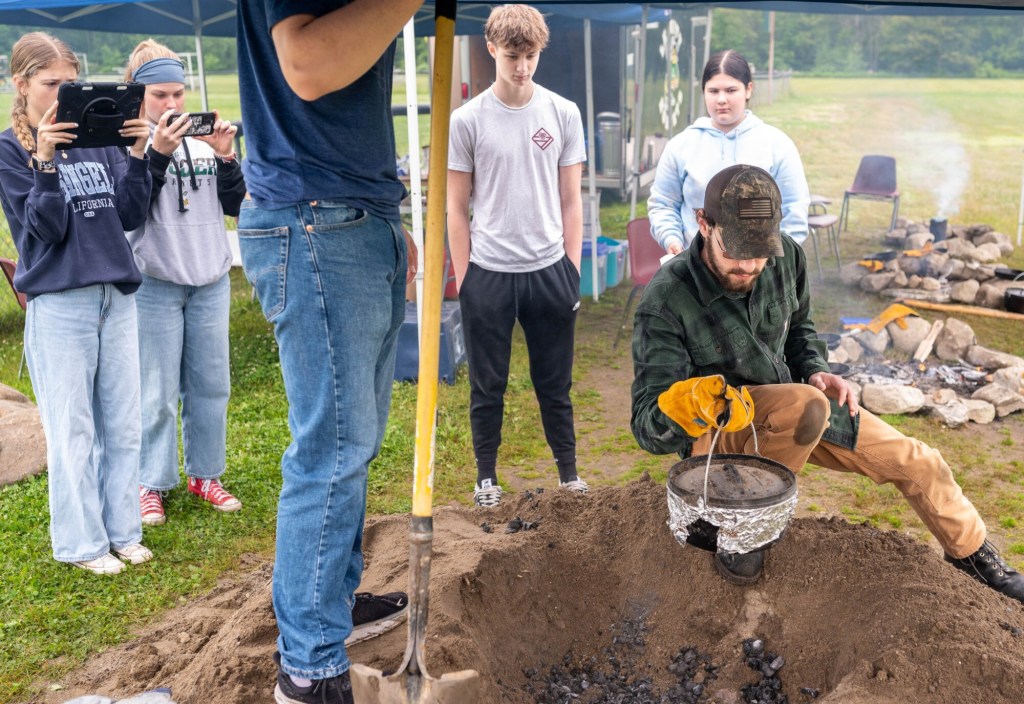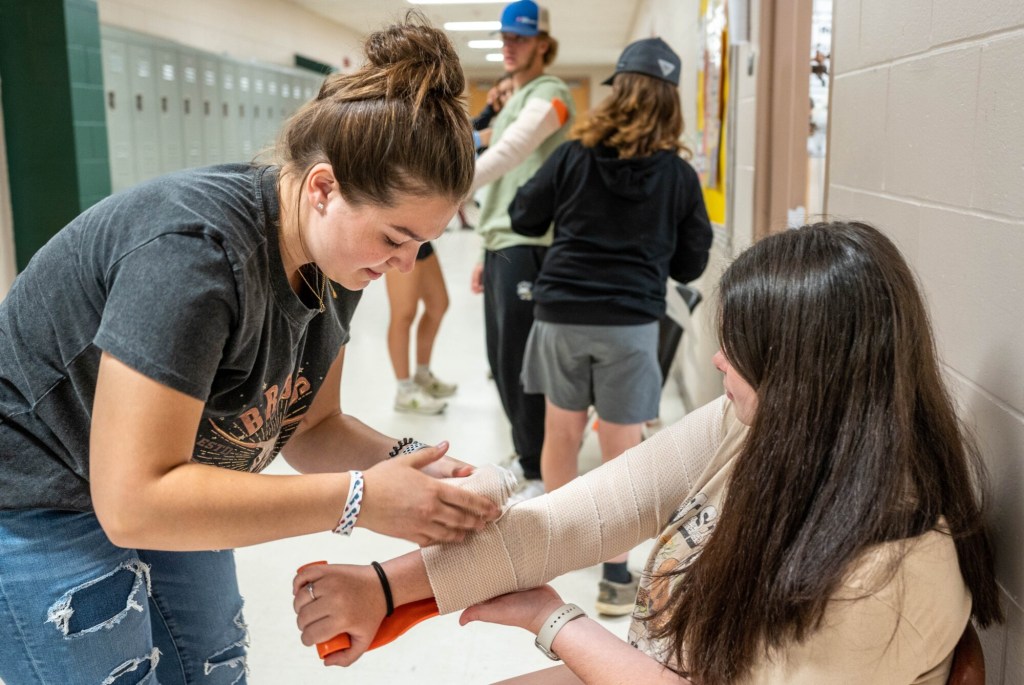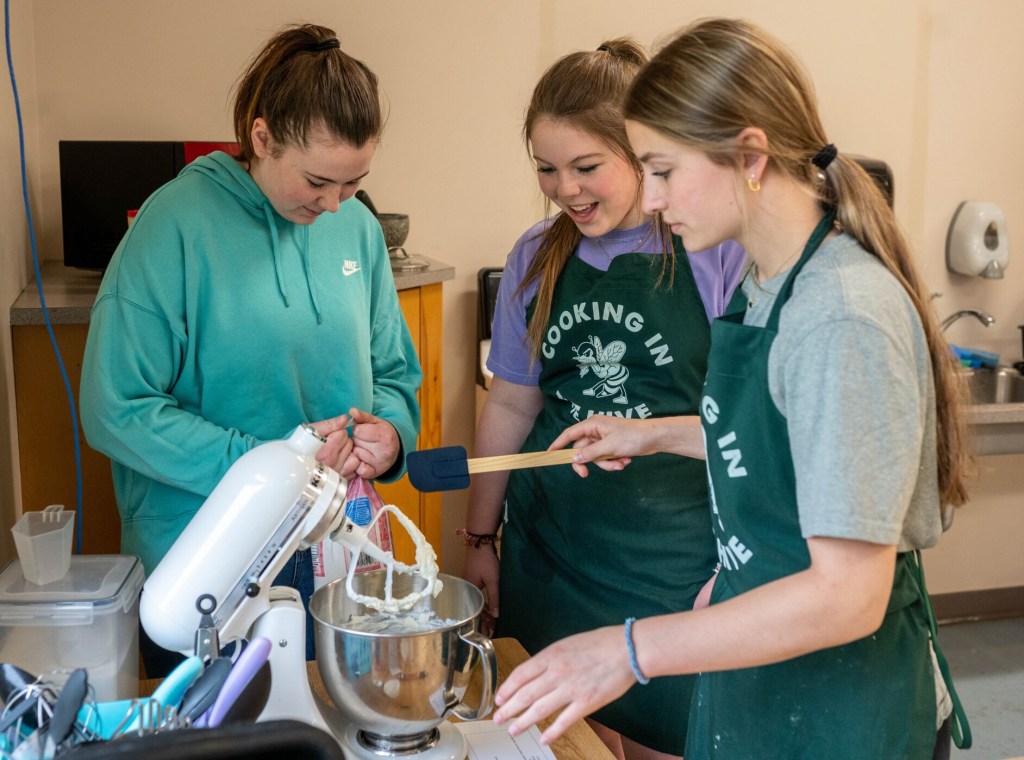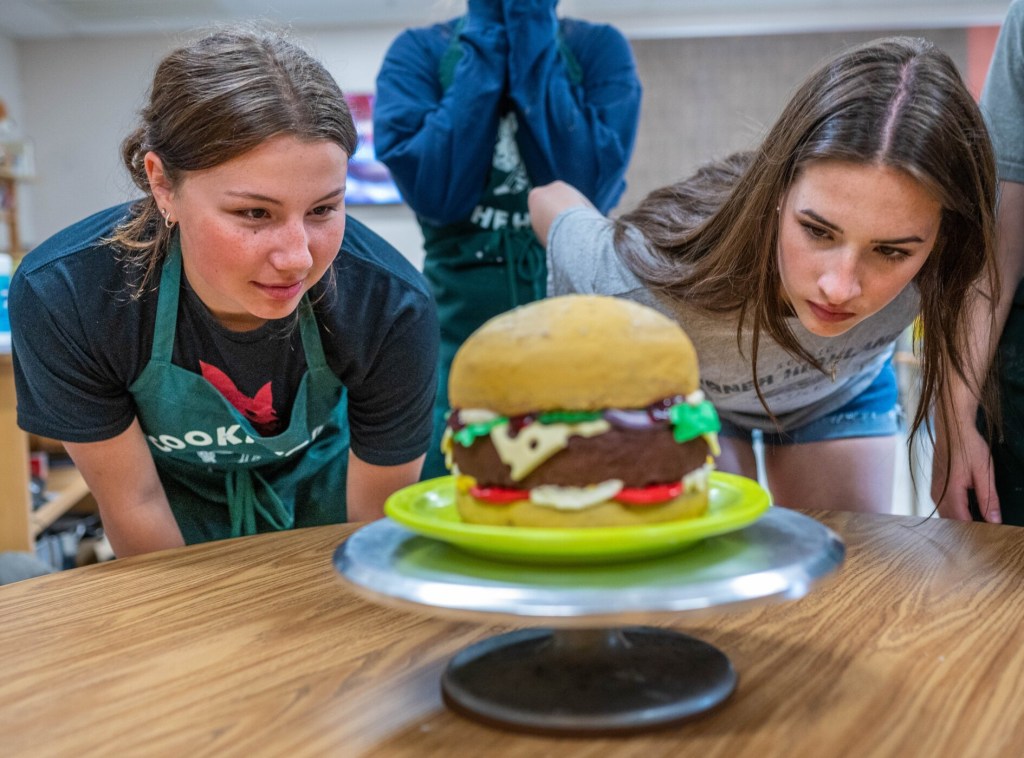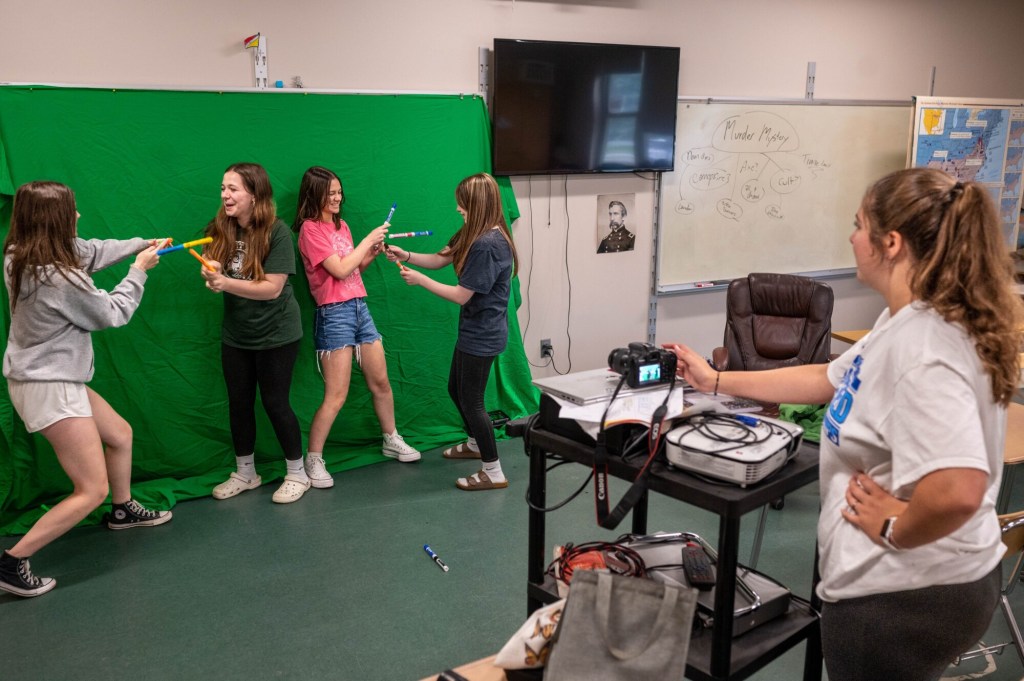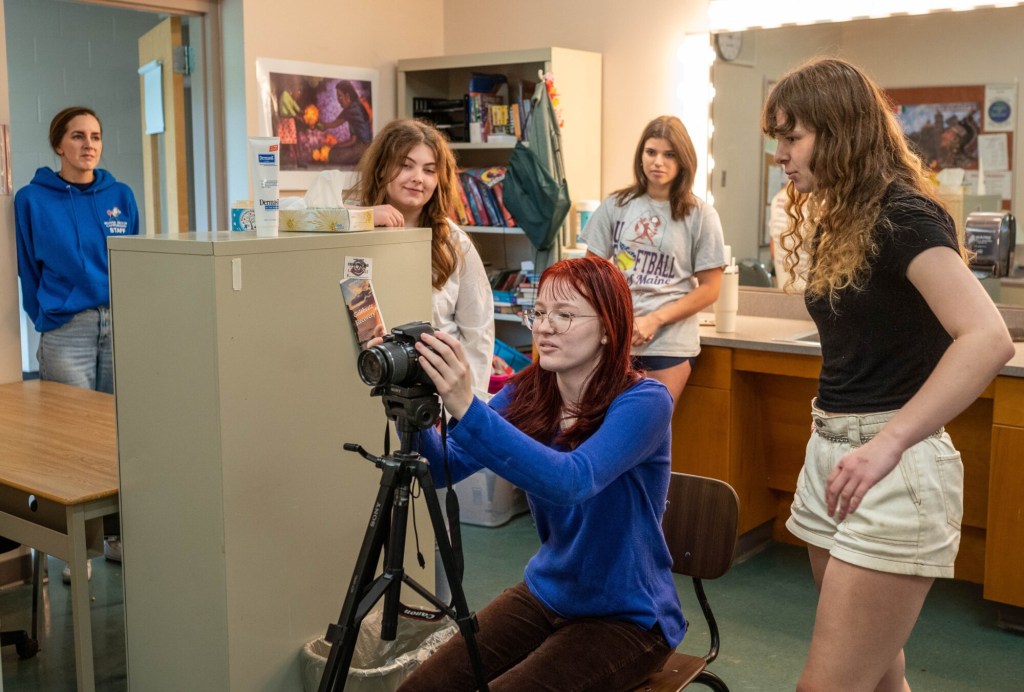TURNER — Someone has a broken elbow. There’s no bleeding, but time is of the essence.
What would you do?
On Wednesday morning math teacher Jamie Juntura challenged his wilderness first aid students to respond to the hypothetical injury. Spread out in the hallway of Leavitt Area High School, the students quickly sprang into action.
In one group, Presley Morris began making a splint for Bella Jennings’ “injured” right arm. In just a few minutes, the elbow was immobilized using a triangle bandage and a splint.
Wilderness first aid is one of 24 special classes being offered by Leavitt for its inaugural H.I.V.E. Week. The acronym stands for Hands-on, Interactive, Varied Experiences.
For four days, students study one topic intensively, primarily through hands-on activities; on the fifth day they will set up booths in the gym and learn about each other’s experiences.
Students were given the option to sign up for classes on a range of teacher-proposed subjects, including one introducing students to Russian and Ukrainian language and culture, and another that allows students to volunteer for different nonprofit organizations each day. Some students learned to sew quilts, while others made movies and Chinese food from scratch.
The goal, school administrators said, is to give students the opportunity to learn about topics not covered in regular school instruction and make connections with people outside their usual circles. They hope that doing something new and fun in the last week of school will help reenergize students and staff, and close out the year on a high note.

Hayley McCormick, Mady Therriault and Kylee Spugnardi make buttercream frosting Wednesday in a cooking class during Leavitt High School’s H.I.V.E. Week in Turner. Andree Kehn/Sun Journal
Teachers, for their part, said they felt some students who struggle in school have been more engaged in the experiential learning activities.
Morris races snowmobiles with her family in the winter and at times, she’s seen people get injured. Often, people simply stand around the person until the ambulance arrives.
“No one knows what to do,” she said. “It’s scary.”
But after learning how to handle various injuries and conditions, including broken bones, shock and burns, Morris said she’s thinking of purchasing some emergency medical supplies to keep on hand, just in case they are needed. The class won’t qualify students to receive a wilderness first-aid certification.
Outside, another group of students was learning how to cook anything and everything over a campfire.
The campfire cooking course, taught by science teacher Kyle Stockwell, began by challenging students to create fires without matches, using just friction and a magnesium fire starter. Since then, students have learned to cook meat and vegetables covered in tinfoil, bean-hole beans and breakfast on a cast-iron skillet.
Tomorrow, the students will learn to cook “trash can turkey” by propping a turkey on a stake covered by a metal trash can.
“They all like fire and they all like food, so I combined the two,” Stockwell said.
Students said the class has been fun and informative.
“I get to eat, I get to cook, and I don’t have to do math,” Kaiden Tabet said.
Bradin Dingwell said he was happy to learn how to cook food “with nothing” and added that he enjoyed meeting all of the friendly people in his class.

Maddie Gabri, Elizabeth St. Hilaire, Sydney Marston and Sia-anna Dill act the parts of fighters Wednesday as Sydney Giles films a movie within a movie during Leavitt Area High School’s H.I.V.E. Week in Turner. Andree Kehn/Sun Journal
Around the school, five groups involved with the moviemaking class were capturing their final scenes before beginning to edit and produce their films. One of the movies was a mocumentary about students auditioning for plays, which leans heavily into theater kid stereotypes, one student said, while another group was making a film about failures in moviemaking.
One of the best parts of the class has been visiting new places in the school, Maddie Gabri said. She’s interested in pursuing marketing after graduation and said making movies has given her the opportunity to think more creatively than usual.
“It actually made me want to come to the last week of school,” she said. “Watching it all come together is great.”
Sydney Giles said the experience taught her just how difficult making movies can be.
Upstairs, Cooking in the Hive students were busy preparing cake-decorating ingredients. Earlier in the week, the students made egg rolls, crab rangoons, lo mien and bagels from scratch, but Wednesday was Nailed It day, named after the television show.
Like the show, students were tasked with mimicking a cake designed by special education teacher and baking enthusiast Jen Perron. Students were awed when Perron revealed her cake, decorated to resemble a cheeseburger.
The idea for H.I.V.E. Week grew from Leavitt’s weeklong summer institute courses, a similar but optional program, Principal Eben Shaw said. Teachers involved with the program were interested in getting the entire school involved, and when the idea was brought up at a staff meeting last year, no one spoke out against it, he said.
In total H.I.V.E. Week cost an extra $15,000, Shaw said. The money was used to cover the supplies and transportation costs for off-campus activities. The money for the program was donated from the trustees of Leavitt Institute, he said.
The expectation is that all freshmen, sophomores and juniors participate in the program. In return, they earn a quarter of a credit in experiential learning.
The school plans to make H.I.V.E. Week an annual program, although some things will likely be tweaked year-to-year.
Send questions/comments to the editors.


